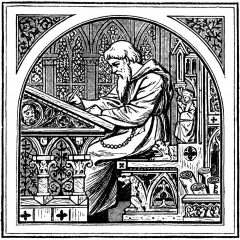In the second of two blog postings on the subject of how faith as I have experienced it made an impact on my own personal life, I will focus this time on my support for those living with neurological illness, specifically Motor Neurone Disease or MND. As I wrote last time, my association with MND started before my journey with Christ re-asserted itself, eventually I came to realise that God had indeed called me to this kind of work even if I was not aware of it at the time. This blog is intended to highlight how from my own perspective, faith and neurology often interact.
What is a neurological condition? Motor Neurone Disease is one of several conditions – including Alzheimer’s, Vascular Dementia, Multiple Sclerosis, Parkinson’s, Cerebal Palsy – which are grouped under the medical discipline known as neurology, i.e. associated with the central nervous system consisting of the brain and spinal cord. While most neurological conditions or illnesses are considered age-related and can lead to severe mobility and cognitive issues, there are those like Cerebal Palsy, which are present at birth and usually life-long in nature (congenital). Others can be inherited from parents or are acquired as a result of an accident or other trauma in later life e.g. acquired brain injury. Motor Neurone Disease or MND which is my particular area of interest, is a degenerative condition that affects those parts of the brain and spinal chord which control muscular movement which results in paralysis or weakening of the muscles concerned with arms, legs, breathing, speaking and swallowing. Diagnosis usually takes around seventeen months to confirm and half of those diagnosed, die within two years. There is no effective treatment and currently no cure.
One of the issues around disability in general is the use of language to describe it. Terms like disability, impairment and handicap are frequently used interchangeably yet little thought is given to their appropriateness. In her book, The Disabled God[1], author Nancy Eiesland (1964-2009) who was born with a congenital bone defect attempts to clarify the terms as follows-:
- Impairment – an abnormality or loss of function
- Disability – is the consequence of impairment, inability to perform a task
- Handicap – the social disadvantages resulting from an impairment or disability.
While having an impairment may be inconvenient it will not necessarily lead to a disability, e.g. a broken leg may impair mobility for a while but if treated properly will not usually result in a disability. Even when disability occurs particularly as a result of an accident or by actions of others for some like Max Sinclair, it becomes an opportunity to reflect from a faith perspective on their changed circumstances. In his book, Halfway to Heaven[2], Sinclair details his recovery from a car accident that at first left him paralysed from a broken neck but who eventually managed to walk again but was left unable to use his right arm. He wrote that God does not guarantee a problem-free life; there is no reference to such an existence in the Bible, things usually happen for a reason, and we must learn from these difficulties. While it is human to have feelings he says, it’s what we do with them that counts, we must have faith in God’s purpose.
Max Sinclair later went on to found Christian Vision for Men (CVM) in 1989, with its mission to “connect men to Jesus and the church to men” it is the largest network of Christian men in the UK and publisher of Sorted and other Christian publications and organisers of Christian inspired events.
I can certainly subscribe to the theory that most of us will undergo some form of traumatic experience in our lives and whether we profess a faith or not, we all have spiritual needs and if we seek our spiritual needs through a faith – any faith – then it is often this which keeps us grounded while we seek to understand what has happened. I have also witnessed this both when working to support those living with MND but also on occasion, when visiting patients as a hospital chaplain and seeing how their faith is helping them adapt to life-changing or life-limiting conditions. Never once when dealing with a patient (whatever their condition) particularly from a faith background (any faith) have I ever heard they or a family member cry out, “why me?” Certainly, with some life-changing conditions like MND there is a lot to take onboard with the diagnosis and that unlike cancer there is no treatment or possibility of it going into remission.
However, during my research I came across a number of medical studies that confirmed and medical science has had to acknowledge, that religious faith can be an integral part of some of their patients current and likely future existence. It is this faith-inspired spiritually which allows them to accept their diagnosis and prognosis and to allow some form of comfort or dignity to be brought to them. While science may struggle to accept this idea at times, they know it cannot be disproved, and that God has somehow provided those patients with the strength to cope and as Sinclair observed earlier, to have faith in God’s purpose.
Perhaps the final word on the subject of faith and its impact belongs to Nancy Eiesland, who in her short life underwent such unbearable pain due to her congenital bone condition (which required several operations) yet steadfastly refused to blame God for her troubles. She wrote-:
The bodies we inhabit and the lives those bodies carry on need not be perfect to have value. Bad things do happen we know to bad people and good people alike – but so do good things. Life’s curses like life’s blessings, are always mixed.
[1] N. Eiesland, The Disabled God: Toward a Liberatory Theology of Disability (Nashville, TN: Abingdon Press, 1994)
[2 M. Sinclair, Halfway to Heaven (London: Hodder and Stoughton, 1982)
